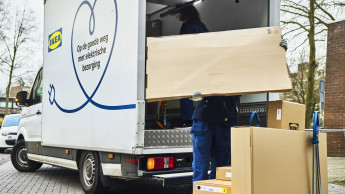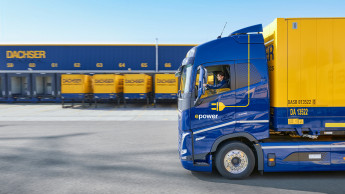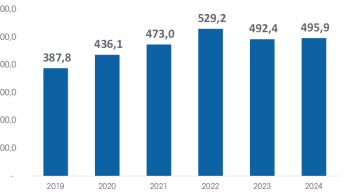

deep insights, facts & figures

Dachser’s Ralf Meistes is convinced that globalisation would not have happened so rapidly without the logistics industry
Logistics, the third largest branch of the economy in Germany, is very quick to sense cyclical fluctuations and able to respond to them rapidly. Like a seismograph that can detect seis-mic shocks at a distance of 9 000 km, the pointers on the logistics measuring device fluctuate at the first signs of any changes to the economy. The global supply chains transport the flow of goods all around the world like gigantic pipelines. These days absolutely nothing works without logistics. What triggered the boom in the transport business was the terrific upswing in the fifties, the years of the economic miracle. At that time the primary aim was to satisfy the steadily growing demand for industrial and consumer goods and to transport those products as quickly as possible from A to B. The sixties and seventies then saw the development of new technologies and the concept of “Spedition” (forwarding) became established. The use of containers made it possible to combine land and sea services, and the radius of the transport routes expanded. Having become aware of the advantages offered by containers, Dachser developed the “swap body”, which is still in use through-out the industry today. This separates the cargo container from the towing vehicle in land transport and other operations, resulting in more rapid handling of more cargo. The eighties and nineties were totally influenced by the advent of information technology. And IT systems still today form the backbone of logistics planning. What is more, international agreements are increasingly tending to simplify international transport and communications. The world is becoming ever smaller. Internationalization and the new IT systems are turning freight forwarders into globally operative providers of logistical services. Logistics is becoming a cross-divisional supply chain function, with increasing numbers of producing companies handing this task over to specialist service providers. Logistics nowadays is one of the biggest and most innovative branches of the economy – and the most powerful economic force in Germany after the automobile industry and trade. Of the world’s 20 leading providers of contract logistics, half come from Germany – and Dachser is one of them. Industry sales of just on € 200 bn last year make Germany a leading global logistics base. Positioned in the centre of Europe, the country gains plus points here with an extremely good infrastructure, professional customs clearance and – typically German – a…
Related articles
Read also

 Menü
Menü












 Newsletter
Newsletter